Navigating the AI Transformation Tightrope: Balancing Innovation, Regulation, and Human Capital
The artificial intelligence landscape in late 2025 presents a complex picture of immense opportunity tempered by significant operational challenges....
5 min read
 Peter Vogel
:
July 28, 2025
Peter Vogel
:
July 28, 2025
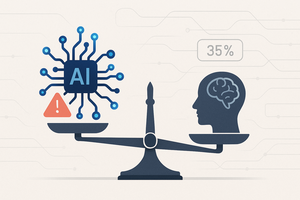
The relentless march of artificial intelligence continues to reshape the business landscape, driven by breakthroughs in coding, evolving content creation paradigms, and intensifying geopolitical rivalries. This week, the AI ecosystem presents a complex interplay of opportunities and challenges, demanding strategic foresight and adaptable leadership.
This article distils these critical AI developments into actionable insights designed for key decision-makers: Operations/Technology Executives seeking to optimise operational efficiency, Marketing Leaders aiming to leverage AI for enhanced marketing capabilities, Growth-Focused CEOs striving for competitive advantage and scalability, Sales Directors focused on improving conversion rates and team productivity, and Customer Service Leaders seeking to enhance service while maintaining quality. These insights are tailored to help you navigate the AI transformation within your organisations.

AI-driven code generation is rapidly transforming software development, promising accelerated development cycles and significant efficiency gains. This shift presents both unprecedented opportunities and critical challenges for organisations. Recent developments underscore the accelerating pace of this transformation.
The integration of AI into coding workflows, evidenced by advancements in tools such as GitHub Copilot, is driving significant changes across the software development lifecycle. These AI tools are enhancing productivity for software development teams and lowering the barriers to entry for citizen developers by automating code generation and streamlining processes (Gartner, 2025; Microsoft Developer Blog, 2025). However, this revolution comes with inherent security risks and challenges in managing technical debt from AI-generated code. Organisations must implement robust security guardrails and thorough code review processes to mitigate potential vulnerabilities in AI-developed software.

AI's increasing role in content creation is revolutionising marketing, media, and education, opening up new avenues for content generation, personalisation, and distribution. However, this transformation raises critical concerns about authenticity, transparency, and the urgent need for robust content verification mechanisms.
The emergence of advanced models like GPT-5 (TechCrunch, 2025), while enhancing creative capabilities, amplifies concerns about the authenticity of AI-generated content and the increasing difficulty of verifying its origin. Governments and organisations are prioritising ethical considerations and establishing stricter governance frameworks to address these challenges (BBC News, 2025; Financial Times, 2025). Businesses must now prioritise implementing robust content verification processes and ensuring human oversight in their AI content creation strategies to maintain trust and brand integrity.
The rise of AI-generated content also presents implementation challenges, including developing effective content verification tools, managing copyright issues related to AI-generated material, and addressing the potential spread of misinformation.

The global AI race is intensifying, with the U.S. and China vying for dominance in AI research, development, and deployment. This geopolitical competition has significant implications for businesses operating in the global market.
China's increasing share of AI patents and substantial investments in AI infrastructure are challenging U.S. leadership. China accounted for 63% of global AI patents in 2024 and filed over 1,200 AI patents monthly, surpassing U.S. filings by a 2:1 ratio (WIPO Annual Report, 2025). This creates a dynamic landscape with evolving trade regulations and security concerns, particularly regarding semiconductor exports and data flows (Reuters, 2025). To navigate this complex landscape, businesses must closely monitor geopolitical trends, comply with evolving trade regulations, and adapt their AI strategies to remain competitive in the global market. This includes balancing innovation with security considerations and fostering international collaborations where possible.
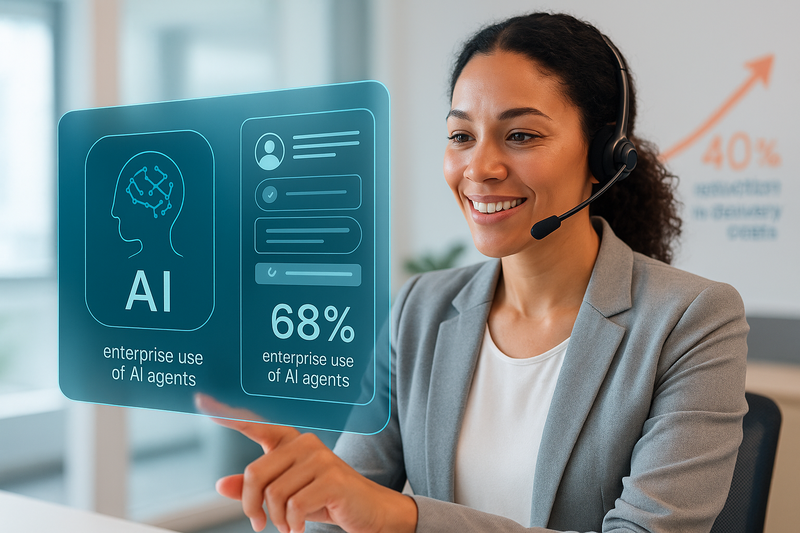
AI-powered virtual assistants are transforming customer service, sales, and administrative tasks, offering new possibilities for automation, personalisation, and efficiency. This technological shift is driven by the emergence of sophisticated AI agents capable of handling complex tasks and interacting with customers in natural language.
Organisations are increasingly leveraging AI agents for customer service, with 68% of enterprises reporting their use (Gartner, 2025). This widespread adoption highlights the measurable impact on operational efficiency, with Amazon's Prime Air service, for example, reporting a 40% reduction in delivery costs in pilot programmes using AI-guided drones (The Guardian, 2025). However, businesses must carefully design and implement AI virtual assistants to ensure they deliver positive customer experiences, maintain brand consistency, and address ethical considerations. This includes training AI agents to handle complex or nuanced customer interactions, managing customer expectations regarding AI capabilities, and addressing privacy concerns related to data collection and usage.

As AI becomes increasingly pervasive, it is crucial to address ethical considerations, promote responsible AI development, and ensure that human values remain at the core of AI systems. This requires a proactive approach to identifying and mitigating potential risks.
Increased scrutiny of algorithmic bias, transparency, and accountability in AI decision-making is driving a need for robust AI governance frameworks. For instance, 22% of AI systems reportedly exhibit bias in decision-making (Partnership on AI Report, 2025), necessitating stringent safeguards. The EU AI Act, now in full implementation, mandates rigorous risk assessments and transparency for AI deployments in high-impact areas (European Commission, 2025). While 68% of enterprises use AI, only 35% have formal ethics policies, highlighting significant gaps in governance (IBM Institute for Business Value, 2025). Businesses must prioritise ethical considerations, implement robust AI governance frameworks, and foster a culture of responsible AI innovation, ensuring that AI systems are aligned with human values and promote societal well-being.
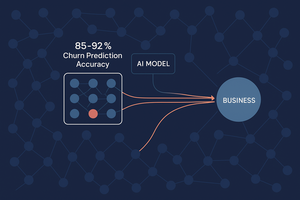
The artificial intelligence landscape in late 2025 presents a complex picture of immense opportunity tempered by significant operational challenges....
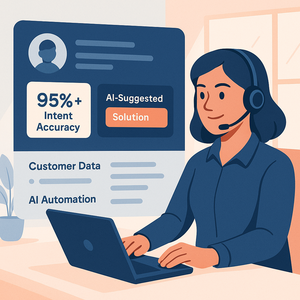
The discourse surrounding artificial intelligence is maturing. Across boardrooms and operational teams, the conversation has decisively shifted from...
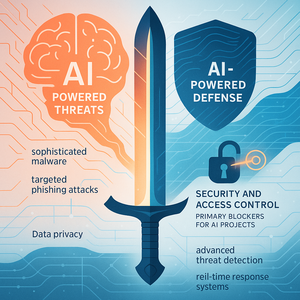
The artificial intelligence landscape is no longer a distant frontier; it's rapidly reshaping the present, demanding a strategic response from...